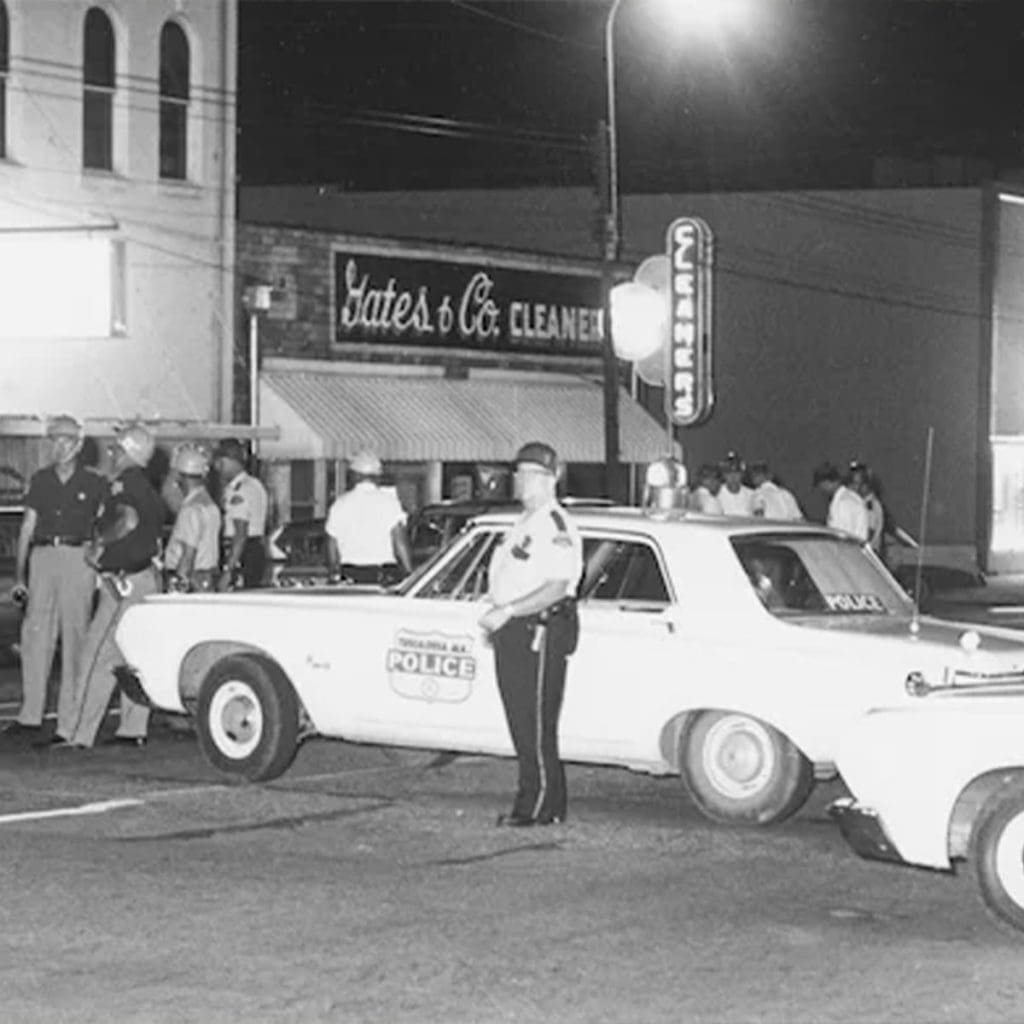The Civil Rights Act of 1964 ended legal segregation in all public places, including movie theaters. Previously blacks were barred from entering theaters or forced to use separate entrances and sit in the balcony. The other option was to attend all-black theaters. Tuscaloosa was no exception. The Druid Theater and the Bama Theatre served white patrons only. An earlier version of the Bama Theatre-called the Ritz/Capri-had a balcony for black patrons. The Diamond Theater, located in a nearby black commercial area dubbed the Blue Front District, served the African-American community.
After the passage of the Civil Rights Act on July 2, 1964, blacks immediately tested the scope of their newfound rights. On the evening of July 8, 1964, a group of black teenagers entered the Druid Theater. When they were leaving they were met by a mob of whites. Armed blacks rushed to the scene and secreted the teenagers away under a hail of bottles and rocks. The next night an incident that brought Tuscaloosa into the national spotlight occurred.
Jack Palance, a movie actor who would win an Academy Award later in his life, was in town with his wife and children to visit relatives and attend a movie at the Druid Theater. Rumors surfaced that Palance and his family were in town to support integration. Another rumor mistakenly asserted Palance, who was heavily tanned, was a black man escorting a white woman into the theater. During the movie, the Palances endured a steady volley of insults. Once outside they confronted a mob of at least a thousand whites. The mob began throwing rocks and bricks at them, shattering the doors and windows of the Druid. Using fire hoses and tear gas to disperse the crowd, the police were able to escort the Palances to safety. Police subsequently imposed a curfew for several weeks.

